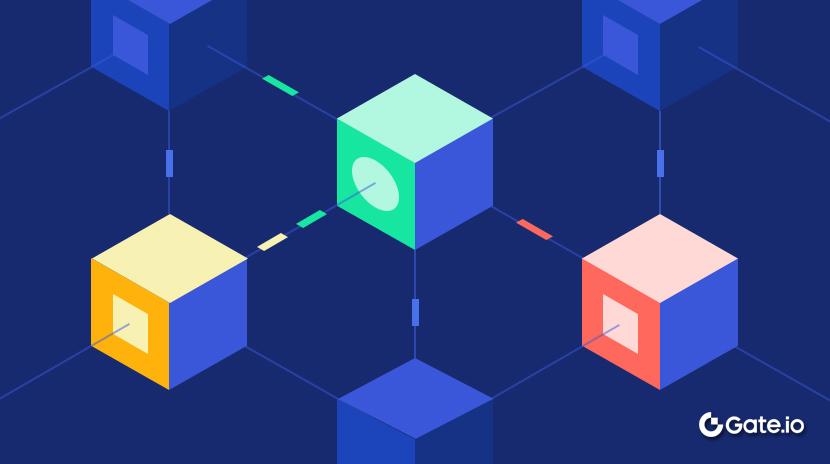初めてのブラインド計算ネットワークNillionとそのエコシステムの概要
Nillionは常にデータプライバシーとセキュリティ分野に専念してきました。革新的な「ブラインド計算」コンセプトと包括的なアプリケーション開発ツールを備えており、開発者が簡単かつ効率的にプライバシーを強化するアプリケーションを構築できるようにしています。AI、DeFi、ソーシャル、ゲーム、ヘルスケアなど、幅広いユースケースをサポートしています。3月初め、分散型で安全なコンピューティングネットワークGateは、今月メインネットを稼働させることを発表しました。同時に、Gateは先月、コミュニティメンバーや開発者、イベント参加者などさまざまなユーザーグループを対象とした、$NILトークンのエアドロップ申請ページを開設しました。今後のTGEに向けて、Gateは新たな開発段階に入っています。
2021年に設立されたNillionは、データプライバシーとセキュリティに深く焦点を当ててきました。革新的な「ブラインド計算」のコンセプトと包括的なアプリケーション開発ツールにより、開発者は簡単かつ効率的にプライバシーを強化するアプリケーションを構築できるようになり、AI、DeFi、ソーシャル、ゲーム、ヘルスケアなど幅広いユースケースをサポートしています。
この記事では、Nillionの開発の経過について検討し、その中核技術を概説し、現在のエコシステムを詳しく見て、プライバシー・コンピューティング領域で有望なプロジェクトに対するユーザーの包括的な理解を提供します。
Nillion Project Overview
Nillionは、パスワード、金融データ、生体認証情報、医療データなどの高価値データを完全に暗号化された状態で保存、送信、処理することを可能にする分散型データストレージおよびコンピューティングネットワークです。これにより、従来の「暗号化-復号化-計算-再暗号化」プロセスが不要となり、データのプライバシーとセキュリティをライフサイクル全体で確保します。データ内容を公開せずに計算を行うことを「ブラインド計算」と呼びます。

ソース: @nillionnetwork
Nillionの開発会社はNilogyであり、CoinList Seedプログラムによってインキュベートされました。 Nilogyの創設者兼CTOは、Uberの創業エンジニアであるConrad Whelanです。 Nillion自体も強力なチームを誇っています。
- Alex Page: CEO、元ゴールドマン・サックスの投資銀行家、ヘデラSPVのジェネラル・パートナー。
- Miguel de Vega: 共同創業者で最高科学者、ファイバーオプティックネットワークや機械学習アルゴリズムなどの分野にまたがる30以上の特許を保有しています。
- Andrew Masanto: 共同創設者、NFT.com、Reserve、Hedera Hashgraphなど複数の暗号通貨プロジェクトに深く関与しています。
NillionはDistributed Global、Hack VC、GSR、HashKey Capital、Maelstrom Capital、およびAnimoca Brandsなどの投資家から4500万ドルを調達するという2つの資金調達ラウンドを完了しました。
チームはまだ詳細なトークン経済モデルを公開していませんが、利用可能な情報によると、$NILの総供給量は10億です。Nillionは、総供給量の7.5%をコミュニティメンバーや早期貢献者にエアドロップしました。昨年6月のCoinList公開セールでは、チームが総供給量の3.5%、つまり3500万$NILを公開セール用に割り当てました。
Nillion Core Architecture
機能の分離と効率的な管理を実現するために、NillionはPetnetとnilChainという二層のネットワークアーキテクチャを採用しています。
- Petnetは、各ノードが独立して1つ以上のブラインドモジュールを選択できるノードネットワークで構成されるオーケストレーションレイヤーとして機能します。各ブラインドモジュールには、異なるアプリケーションシナリオに合わせた1つ以上のプライバシー強化技術(PET)があります。これには、Secure Multi-Party Computation(MPC)、Homomorphic Encryption(HE)、Trusted Execution Environments(TEE)などが含まれ、開発者は特定のニーズに最適な技術を選択できます。
現在、Nillionは、3つのブラインドモジュールを開発しています: nilDB、データベースソリューション; nilVM、データ署名に焦点を当てたソリューション; そしてnilAI、TEE環境内で大規模言語モデル(LLM)の安全な実行を可能にするAI製品。

ソース:docs.nillion.com
- nilChainは、Nillionネットワーク全体で共有リソースを管理し、調整レイヤーを担当しています。nilChainは直接ブラインド計算に参加しませんが、クラスターの調整を担当し、支払い、バリデーターのステーキング、報酬、およびガバナンスをサポートしています。Cosmos SDKスタック上に構築されたnilChainは、相互運用性のためにIBCをサポートしています。
このモジュラーフレームワークを使用することで、Nillionは高付加価値データのフルポテンシャルをより安全かつ柔軟に引き出すことを目指しています。ネットワークの健全性と安定性を確保するために、Nillionは昨年8月にバリデータプログラムを立ち上げ、ネットワークへの貢献により報酬を得ることができるようにしました。公式ウェブサイトによると、3月10日時点で50万を超えるバリデータがおり、約1億9600万の暗号文を処理し、約1,066GBのデータを保護しています。
Nillionエコシステム概要
Nillionエコシステムの成長を促進するために、チームはNucleus Builder Programを立ち上げ、開発者がアプリケーションを構築する際に包括的なサポートを提供しています。これには技術支援、マーケティング、財務計画、およびマーケット戦略が含まれます。同時に、Nillionは外部で積極的に拡大しています。Near、Aptos、Arbitrumブロックチェーンと統合するだけでなく、インフラ、AI、ソーシャル、DeFiなど複数のセクターで数十のプロジェクトと深い協力関係を築いています。
インフラストラクチャ
- Blerify:個人や企業のデジタルアイデンティティと資産管理を簡素化するための検証インフラを提供します。Blerifyは、W3C検証可能な資格情報とISO 18013の標準を採用しており、ユーザーはSDKやAPIを介してデジタル資格情報を簡単に統合し、アプリケーションとのシームレスな相互作用を実現できます。
- zkPass:プライバシーデータオラクルプロトコルで、オンチェーンでプライベートデータの検証を可能にします。zkTLS上に構築されたzkPassは、3P-TLSとハイブリッドZKテクノロジーを組み合わせて、安全で検証可能なデータ共有のためのツールやアプリケーションを提供します。そのTransGate機能により、ユーザーは法的身元、財務記録、医療情報など、さまざまなタイプのデータを選択的に証明することができます。
- Aspecta: Binance Labsの7番目のMVBアクセラレータープログラムの一部であるAI駆動の資産ネットワーク。 Aspectaは、Bonding Curveに基づいて価格設定および取引されるBuildKeyをローンチすることにより、新しい資産発行モデルを導入しています。 BuildKeyは、トークン、NFT、およびホワイトリストなどのプロジェクト資産にも変換できます。
AI
- Ritual: 分散型のAIコンピューティングプラットフォームで、分散ノードのネットワークを集約し、クリエイターがネットワーク上の任意のモデルをホスト、共有、アクセスできるようにします。主要製品には、オンチェーンとオフチェーンの計算を結びつける軽量フレームワークであるInfernet、現在テストフェーズにあるモジュラーAI実行レイヤーであるRitual Chainが含まれます。この統合により、開発者はユーザー入力データとAIモデルのプライバシーを維持する能力が向上します。
- Mizu:NEAR Horizon AIインキュベーションプログラムに選ばれた包括的なAIデータレイヤー。 Mizuは、スマートフォンやノートパソコンなどの日常的なデバイスを使用してエッジAIネットワークを構築できるようにし、コンピューティングパワーとデータ処理を提供することによりMIZUポイントを獲得できます。 開発者はトークンを支払ってエコシステム製品やサービスにアクセスでき、迅速にAIアプリケーションを構築できます。
- Nesa: Binance Labsの第7回MVBアクセラレータプログラムに含まれる、オンチェーン信頼できるAI向けの軽量Layer 1ブロックチェーン。Nesaは、LLMs、ビジョン、および他の主要なモダリティのモデルを格納する最初のオンチェーンAIリポジトリを構築しており、プライベートカスタマイゼーションをサポートしています。Zero-Knowledge Machine Learning(ZKML)やSplit Learning(SL)などの技術により、セキュリティとプライバシーを強化しています。
- Capx:世界最大のAIコンシューマーレイヤーを構築し、ユーザーがAIエージェントを作成、管理、取引できるようにすることを目指しています。 Capxには、Capx Chain、Capx Application Platform、Capx Cloudの3つの主要製品があります。 Arbitrum Nitro Stack上に構築されたCapx Chainは、2900万以上のトランザクションを処理しています。一方、Capx CloudはSymbioticプロトコルと統合され、トークン化されたAIエージェントの展開とスケーリングをサポートしています。
- Crush AI: LLMおよびAIを活用したインテリジェントなAIエージェントプロトコルで、オンチェーンのゲームや取引などのアプリケーションを構築します。チームには、NASA、Nvidia、Klarnaのメンバーが含まれています。現在、Crush AIはDexscreenerに類似したトークン取引プラットフォームとして運営されています。
- Virtuals Protocol: 任意の人が、Pump.funと同様のAIエージェント取引プラットフォームとして機能するカスタム知識と行動を持つAIエージェントを作成、管理、取引できるようにします。現在、SolanaとBaseネットワークをサポートしています。チームは、開発者が迅速に新しいプロジェクトを立ち上げるのを可能にする軽量なG.A.M.Eフレームワークを開発しました。Virtualsエコシステムの注目すべきプロジェクトには、aixbt、Luna、G.A.M.E、VaderAIなどがあります。
- Skillful AI:特定のコンテキストとユーザー固有のメモリに焦点を当ててトレーニングされた個人用AIエージェントを提供することに特化した、Skillful AIです。Skillful AIは現在パブリックベータテスト中です。
- Rainfall: ユーザーがデータを共有することで財務報酬を得ることができるプライバシーに焦点を当てた個人向けインテリジェンスプラットフォーム。現在、カスタムL2ブロックチェーンのAlphaメインネットを運用しています。チームはRainmaker Poolリワードプログラムも立ち上げており、早期参加者はエコシステムへの貢献に対してポイントを獲得し、後にネイティブトークンに換金することができます。
- Nuklai: A Layer 1 blockchain and collaborative data marketplace designed to provide diverse structured datasets and decentralized computing power for LLMs.
- Dwinity: A Web3オペレーティングシステムは、プライベートデータと分散型AIに焦点を当て、ユーザーが個人データの価値を安全にコントロール、管理、最大化するのを支援します。
- Verida AI: 自律データ経済向けに設計された暗号化データベースストレージおよび計算レイヤーで、個人や組織が個人情報やプライベートデータを安全に保管して利用し、個別のAIを含むさまざまなアプリケーションに活用できるようにします。
DEX
- Kayra:オーダーブックMPCに基づく分散型ダークプール取引所で、ユーザーの取引実行にプライバシー保護を提供するよう設計されています。
ヘルスケア
- Space of Mind: トラウマ的ストレスに対するピアサポートを提供し、ユーザーがレジリエンスと社会的つながりを築くのを支援します。
- Monadic DNA: ユーザーのDNAデータが保管、転送、および相互作用全体で暗号化されたままになるように、完全準同型暗号化(FHE)や多者計算(MPC)などの盲目的な計算技術を利用して、その価値を最大化します。
- AgeRate:ユーザーが老化を監視し、遅らせるのを支援するアプリケーションと血液検査を提供します。
DAO
- DecentDAO: Decentは、マルチシグネチャウォレットやSnapshotクライアントから完全なモジュラーオンチェーンガバナンスに移行するチームを支援するツールと統合を提供する完全なEVM互換のオープンソースフレームワークです。
DeSci
- DeSciWorld:科学者に力を与え、独自の条件で研究を行い、自らの業績の価値を効果的に捉えるためのツールを提供する分散型科学研究プラットフォーム。DeSciWorldは、情報集約プラットフォーム、Proof of Knowledge(PoK)プロトコルを活用した技術製品スイート、NFTマーケットプレイス、および$KNOWを中心とした経済を備えたエコシステムを構築しています。
コミュニケーション
- MailChain: ユーザーが複数のチェーン間で暗号通貨を使用してコミュニケーションすることを可能にするWeb3通信レイヤーです。このプラットフォームには、ブロックチェーンウォレット間で暗号化されたメッセージを送信するためのオープンソースのマルチチェーンプロトコルと、電子メールのような受信トレイアプリケーションから成る2つの主要コンポーネントがあり、ユーザーはオンチェーンのアクティビティを追跡しながらメッセージの表示と送信ができます。
DeFi
- ChooseK:Gateは、多重計算(MPC)およびホモモーフィック暗号化(HE)を使用して、金融サービス取引のプライバシーを証明可能に提供する安全な暗号化ワークフローを構築します。
- Hopscotch: 買い手と売り手に信頼できる、透明性の高い、効率的な取引環境を提供し、彼らの利益を最大化する取引マッチングプラットフォーム。
- Bitcash:bitUSDのステーブルコインビジネスに焦点を当て、ユーザーがbitUSDで商品やサービスを購入できるようにしています。さらに、チームはBitLauncherを立ち上げ、AIスタートアップが資金を確保し、AI開発の民主化を促進するためのプラットフォームを提供しています。
- Salt: 仮想通貨投資ポートフォリオのプログラマブル所有権を特化したサービス。チームは、個別の投資管理を求めるユーザーが複雑な投資戦略を実行しながら最も適したAIエージェントを比較して選択できるマーケットプレイスを構築しています。
ゲーム
- BattleshipX: マルチプレイヤーモードをサポートし、Nillionのブラインド計算とEthSignプルーフを利用してゲームの状態とロジックを保存するターン制の戦艦ゲーム。
ソーシャル
- Flux: Coasysチームによって開発され、Holochainで動作するインテリジェントネットワーキングソーシャルツールキット。Fluxソーシャルフレームワーク内では、ユーザーはプライベートで合成可能な分散型のソーシャル構造を作成し、ゼロの遅延やガス手数料をサポートし、トークン支払いやWebサービスの統合など、さまざまな暗号機能をサポートしています。
- Aloha: パーソナライズされたAIを介したマッチメイキングを通じてデート体験をサポートし、安全で信頼性のあるユーザーデータ保護を確保するAI駆動のデートアプリケーション。
結論
TGEが近づくにつれて、Nillionチームはエコシステムの総合的な開発を加速しています。開発者に詳細なドキュメンテーションやツールサポートを提供するだけでなく、チームはハッカソンや開発者コンペティションのスポンサーを通じて高品質なプロジェクトを積極的に引き付けています。これらの取り組みはNillionの技術的影響力を高め、エコシステムの爆発的な成長のための堅固な基盤を築いています。
However, it is important to note that most projects within the Nillion ecosystem are still in the early stages of development and require time before reaching full deployment. During this period, the ecosystem’s growth will face multiple challenges, including technical, market, financial, and resource-related hurdles. Key issues include the complexity of integrating multiple privacy technologies, market competition from similar projects, and regulatory challenges surrounding privacy data applications. Addressing these challenges will require the Nillion team to continuously optimize its technical architecture, refine developer tools, and strengthen ecosystem support while working closely with project teams to drive ecosystem maturity and expansion.
関連記事
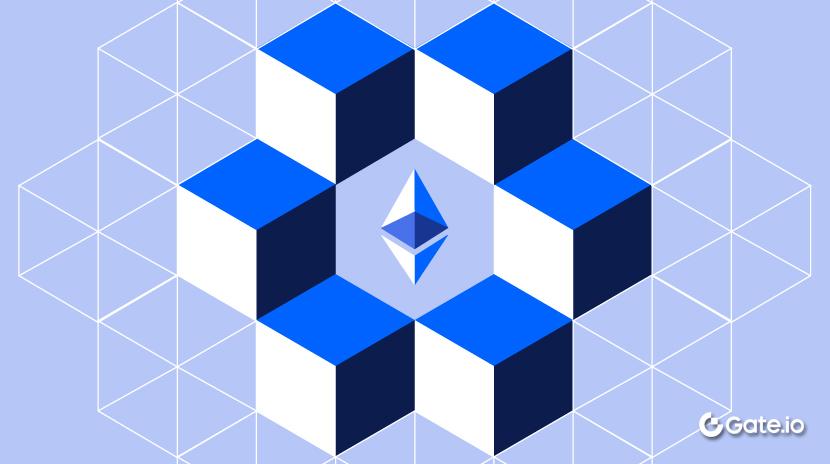
ETHを賭ける方法は?
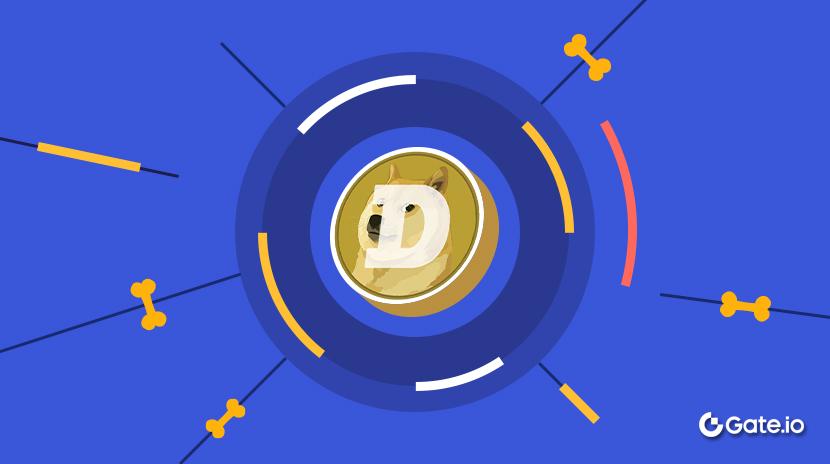
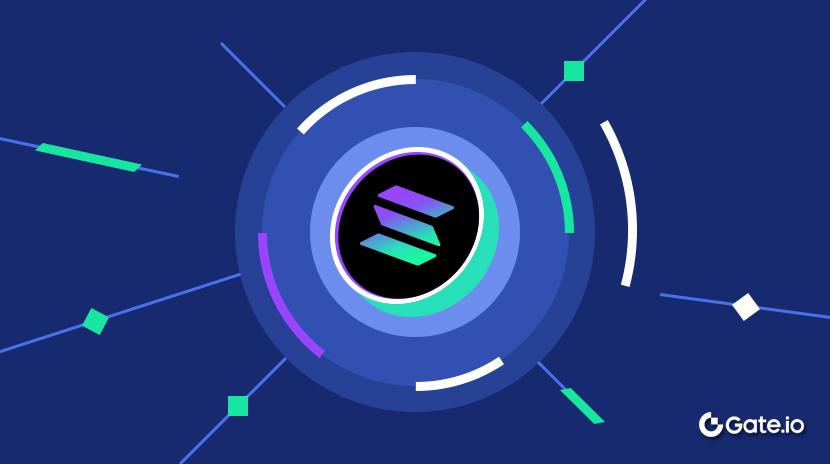
ソラナとは何ですか?
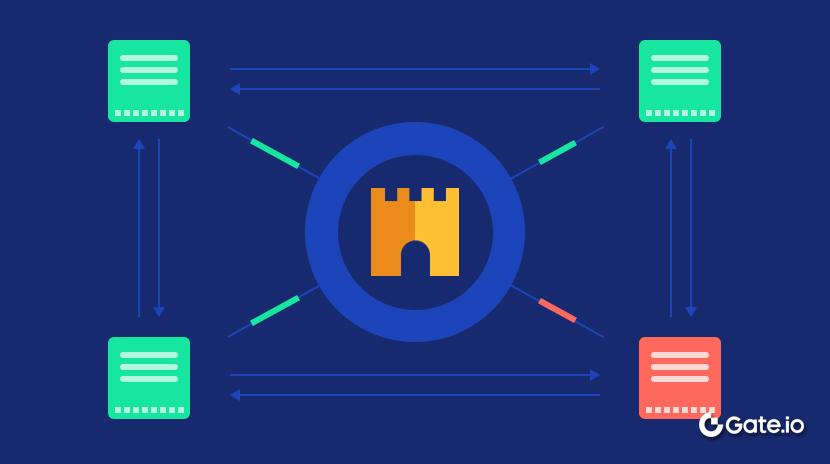

GateToken(GT)とは何かをご説明します。
